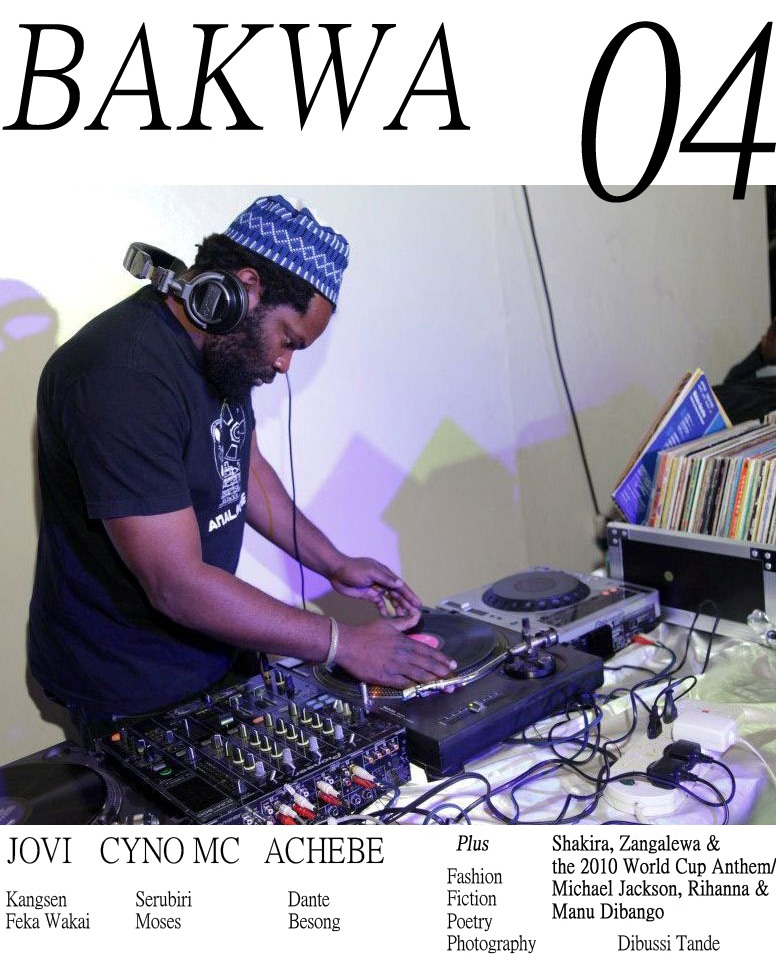Soul Makossa by Cameroonian saxophonist Manu Dibango dates back to 1972 and is often cited as one of the first disco records ever. Over the years, the song has been sampled and alluded to in songs by artists such as Michael Jackson, Rihanna and Kanye West, with little or no credit given to Manu Dibango. An example of the West’s view of African music can be seen in a recently published piece in The New York Times titled Digital Music, the African Way, in which it laments the paucity of digital music revolution in Africa with a sentence like: “Digital music, responsible for the improvement in the industry’s brighter overall outlook, has failed to catch on across much of Africa.” A timely riposte from the blog Africa is a Country sets the record straight, as Benjamin Lebrave says “If you want to understand how digital music is evolving in Africa, you first have to step out of the office, and go where digital music lives: in the devices of teenagers. You have to witness how music listening and consuming habits have changed. You have to see how hits blow up strictly from Bluetooth swapping. You have to go to concerts, and watch crowds chant in unison to songs which never play on the radio or on TV.”
Now, how could The New York Times say such a thing about music in Africa in the age of YouTube, iTunes and Amazon, when EP’s and LP’s are shared (uploaded & downloaded) and go viral even before they hit the market? A simple look at iTunes’ top selling singles reveals the presence of artists like D’banj and P-Square. Last year, Cameroonian artist Jovi released his debut album H.I.V, and the hype about the album owes a lot to the fact that promotion for the album was done via social media. ‘Pitie’, track 4, featuring Tabuley Richereau was on DJ Edu’s “Destination Africa” show on BBC 1Xtra for more than 12 weeks. Kangsen Feka Wakai reviews Jovi’s album wherein we discover a Kanyesque approach to sound quality and an artist who is very conscious of the post-independence canon.
Music plays a very important role in culture; it influences it and is in turn influenced by it. The Ten Cities Project captures this complexity as part of its brochure says “In Africa today, musicians keep in touch with global pop culture via the Internet and program locally flavored music of explosive creativity, which in turn often finds its way back into the western world.” Ten Cities, an initiative of the Goethe-Institut in Sub-Saharan Africa involves 50 DJs, musicians and producers from Berlin, Bristol, Kiev, Lisbon, Naples, Johannesburg, Cairo, Luanda, Lagos and Nairobi, enabling them to produce music together and exchange their knowledge about club culture and dance music genres. It a nut shell, it involves10 countries, 2 continents, 3 disciplines, 22 concerts, 10 photographers, and 23 authors. The bridging of intercontinental music, which is one of the aims of this project, shows how difficult it is to talk about music from a particular region in isolation now that the world is a global village.
In a recent interview, Ntone Edjabe, founder of Chimurenga Magazine, reiterates the above sentiment when he says that aspects of culture such as music, cinema and writing can bring people together and change public consciousness of notions such as ethnicity and tribalism.
Last year, Rolling Stone Magazine (South Africa) celebrated its first anniversary, which by the way attests to the fact that the printed word still thrives, and Miles Keylock, the editor reiterated the magazine’s aim to be at the forefront of documenting South Africa’s rich musical history and pop culture through long-form and in-depth journalism features, and over the years, the magazine has covered issues on music and featured artists like Hugh Masekela, HHP, Spoek Mathambo, Die Antwoord, and Cama Gwini among others.
In this issue of Bakwa, Serubiri Moses makes us discover a Ugandan artist whose life was literally saved by hip-hop as he discusses Cyno MC’s life struggle, original approach to music and his disrelish of commercial music, while Dibussi Tande investigates how Western artists have over the years flouted copyright laws as they have incorporated elements of songs by African musicians without giving credit to the original artists. The endless list of Western artists guilty of this vice includes— James Brown, Missy Elliott, Michael Jackson and Shakira.
There is also a spotlight and interview with Naoumie Ekiko, a model who has graced the cover of magazines such as Essence and Fashizblack, as well as an excerpt of Blunted on Reality, a debut novel by Chinedu Achebe, which highlights issues like immigration, Obama, and relationships. Anne Moraa takes us to her world as she explores her musical past and compares it to her mother’s, and Rene Nyah argues that music is alternative literature.
Special thanks goes to a number of people and organizations who have shown interest and supported Bakwa in various ways. They are the Goethe-Instituts in Cameroon and Nairobi, as well as Kwani? and Chimurenga people.
Dzekashu MacViban
Founding editor
Editorial 04
